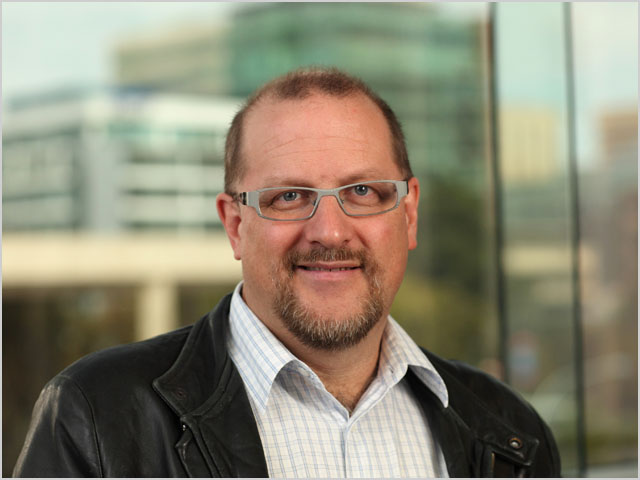We'll filter when the law says: Internode

Internode has clarified its position with respect to the limited filtering scheme being implemented by other internet service providers (ISPs), saying it will implement the scheme when it's forced to by law, but not otherwise.

Simon Hackett (Credit: Internode)
Along with Telstra, Optus has pledged to implement a voluntary filtering framework developed by the industry's peak representative body, the Internet Industry Association (IIA). The filter, which is being seen as a more moderate industry approach developed in reaction to the Federal Government's much more comprehensive mandatory ISP-level filter scheme, will see the ISPs block a "worst of the worst" list of child pornography sites generated by international police agency Interpol.
However, in a post on broadband forum Whirlpool this week, Internode managing director Simon Hackett said that his company wouldn't implement the filtering scheme until it was forced to.
"Bottom line is this: if an existing or new law is used to legally demand that we act in a specific way, we will have no choice to comply with that legal direction, and we will," he wrote. "Until that occurs, it's hard to understand the merits of over-reaching ahead of such a legal direction, and engaging in security theatre for the sake of it, without any legal direction [or protection] provided for us doing so."
The legal instrument, which is seeing Telstra and Optus implement the filters, is contained in Section 313 of the Telecommunications Act.
The Australian Federal Police (AFP) acknowledged that it had issued directions to a number of ISPs.
"The AFP is in the process of issuing a number of ISPs under Section 313 of Telecommunications Act 1997. As the voluntary internet filter scheme is only in its initial stages, the number of internet service providers who will participate is yet to be finalised," the AFP said in a statement.
The AFP will continue to engage with internet service providers as this process continues, and as part of its overarching goal to disrupt the availability of child abuse material within Australia."
ZDNet Australia has asked Telstra if it could see a copy of such directions, but was told that Telstra "complies with mandatory regulatory and legislative requirements", but "cannot make any further comment nor share supporting documentation with external parties related to this process"..
Hackett said that Internode hasn't been given marching orders yet.
"The point is that Internode obeys the law. The law hasn't [yet] directed us to do something in this realm. So we haven't yet done so," said Hackett. "We feel that if the government wishes to pass a law that has the effect of legally requiring us to do something, that's fine — we'll do it. Until then, we will wait and watch with interest."
Hackett said that Internode didn't know, and wasn't responsible for, whatever was driving Telstra and Optus to participate in "whatever it is, exactly, that they're participating in here".
"We hope that the government won't repeat its previous activity in this realm, of framing ISPs who don't act ahead of, and in the absence of the protection of, some new or existing law as being supporters of the 'bad guys'," he added. "We are, of course, not 'supporters of the bad guys'. But we're also not disposed to take actions to impact our customers' internet services that are not [yet] the subject of any form of legal direction to do so."
iiNet said that it hadn't received any notices.
"In regards to Interpol, iiNet has not signed up to the voluntary code; however, we are looking at it closely," the company said.
The Australian has reported that TPG is also against signing up to the voluntary scheme.